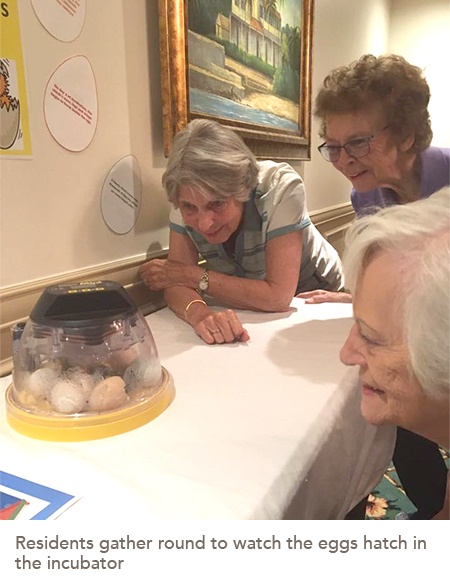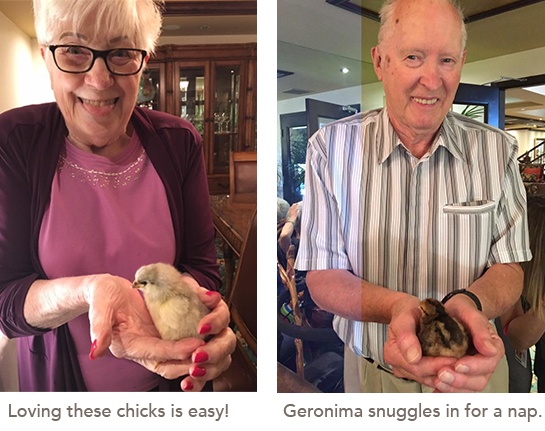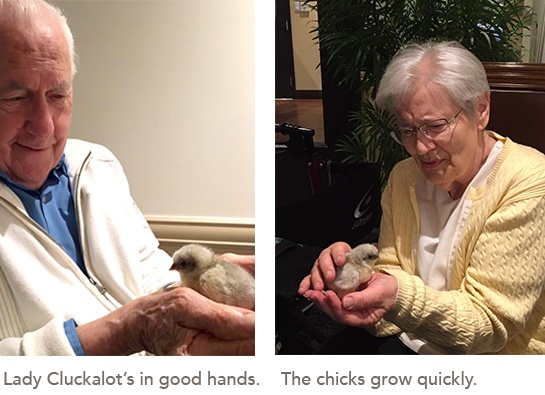 The eggs didn’t move.
The eggs didn’t move.
“It was very nerve wracking actually,” said Diane Toth, Lifestyle Consultant at Peninsula Retirement Residence in Surrey. “We all kind of congregated throughout the day, but they just didn’t hatch.”
Diane said some staff even came in on their day off to see the chicks hatch, but left disappointed. It had been 21 days since their arrival, they were due to crack, but the eggs looked content to stay eggs.
Then, a little after 9 p.m., Lady Cluckalot came into the world and began to live out her namesake by clucking… a lot.
“She was the noisiest,” Diane said.
The rest of the chicks were born the next day. Residents and staff visited the incubator often, and a few residents pulled up chairs and waited for the chicks to hatch. The chicks’ station is decorated with egg-shaped information cards and reminders that Peninsula’s newest members are still growing.
 “It’s been kind of a focal point,” Diane said. “The chicks are just off our main dining room, so as residents go in and out of lunch they check on the chicks.”
“It’s been kind of a focal point,” Diane said. “The chicks are just off our main dining room, so as residents go in and out of lunch they check on the chicks.”
“It’s been great, and sort of like an icebreaker,” Diane said. She said that while residents watch the chicks they start talking, often finding out that they have things in common. Two residents discovered they’d both grown up on farms in Saskatchewan, and many others have traded farming stories or exchanged tales about life in the city versus life on a farm.
A pot of names quickly formed for the five chicks, and it only grew as they developed. Along with Lady Cluckalot, Peninsula was happy to welcome Larry, Curly and Moe, as well as Geronima, who was originally named Geronimo, but as it turns out, is a girl.
“I love it! I’m going to do it again next year,” Diane said. She added that she may have ducklings instead of chicks, but that the program will be back in some form. “I just see so much benefit in this. I’ll definitely do it again.”
 Residents and staff have both loved the experience, especially getting to pick the chicks up and hold them. Their only question now is what will become of them.
Residents and staff have both loved the experience, especially getting to pick the chicks up and hold them. Their only question now is what will become of them.
“One of the residents was like, ‘we’re not going to eat them are we?’” Diane said with a laugh. The answer is no. The chicks will go back to the farm and live free-range, not in cages.
CONTACT US 0800 920 2222

.jpg)
